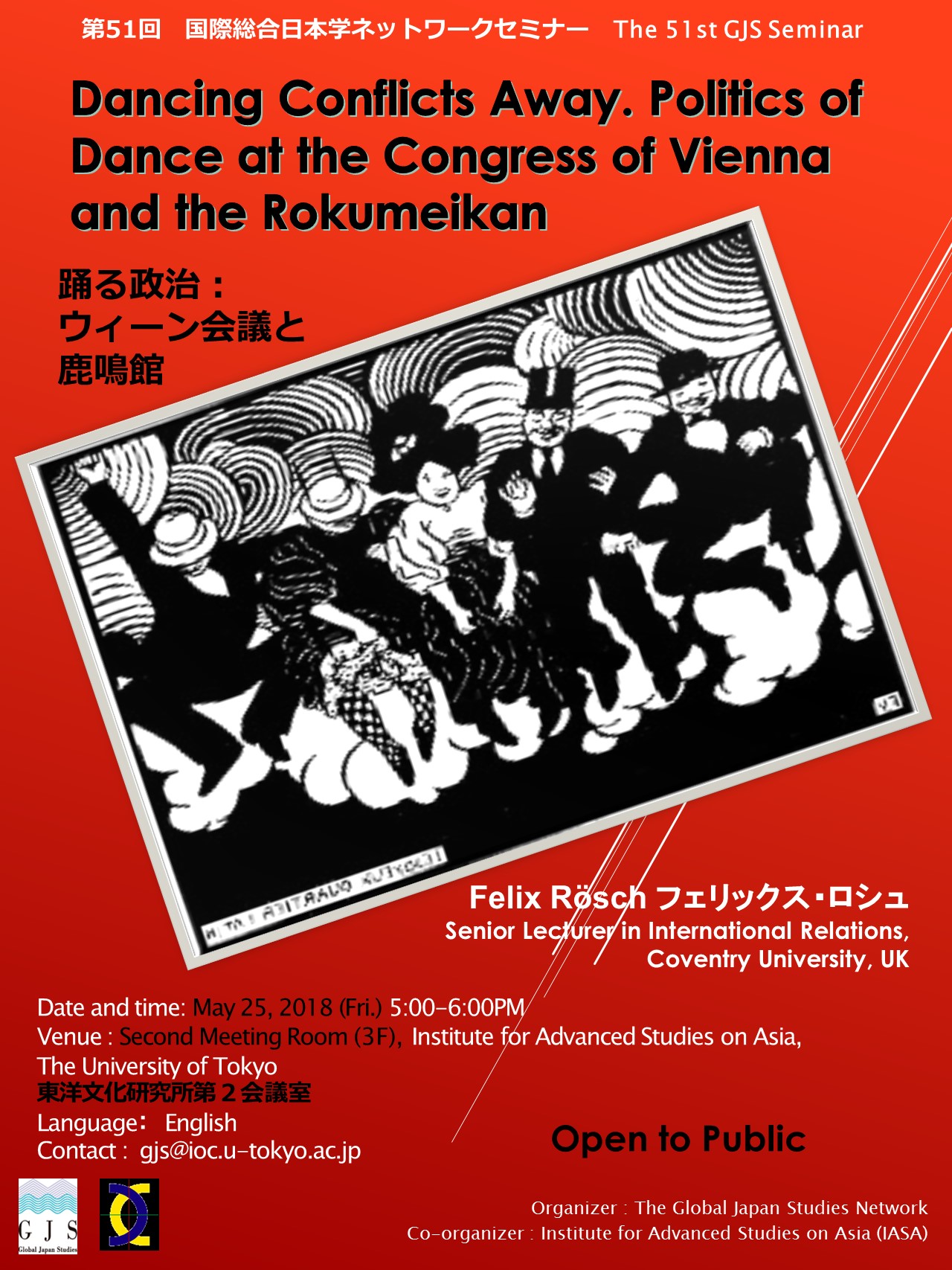第51回GJSセミナー踊る政治:ウィーン会議と鹿鳴館
| 日時: | 2018年5月25日(金) 17:00~18:00 |
|---|---|
| 会場: | 東京大学東洋文化研究所 第二会議室(3階) |
| 発表者: | フェリックス・ロシュ上級講師 (英国コヴェントリー大学) |
| 使用言語: | 英語 |

発表概要: In the 19th century, the global socio-political fabric experienced transformations that still underpin international politics today. Foreign policy making moved from the hands of a transcultural elite to national functionary elites, in whose process embodied modes of international sociability were replaced by seemingly more rational ones. However, this move constricted foreign policy makers in their ability to alleviate international conflicts, as embodied practices help to deal with the ambiguities of international politics by allowing to negotiate different perspectives and exploring common potentialities. This shift in foreign policy making from embodied practices to “rational” discourses is traced through the decline of dance as a practice of international politics. Until the beginning of the 19th century, dances were repeatedly performed as a way to establish the outlines of a new international system, to propose new practices and rituals, to remind of rules that apply in a particular system, to challenge existing rules, or to communicate between one international system and another. Consequently, dancing helped to end the Coalition Wars at the Congress of Vienna (1814 to 1815) and to establish the Concert of Europe. At the end of the century, however, dance was no longer deemed an appropriate form of international sociability, which is why intentions to demonstrate Japan’s progress in westernizing the country with the Rokumeikan (1883-1887) eventually failed. Rather than being accepted into the European dominated international system, Western envoys ridiculed the efforts of the Japanese elite to master Western ballroom dances.
主催:東京大学国際総合日本学ネットワーク(GJS)共催:東京大学東洋文化研究所(ISAS)
問い合わせ:gjs[at]ioc.u-tokyo.ac.jp



